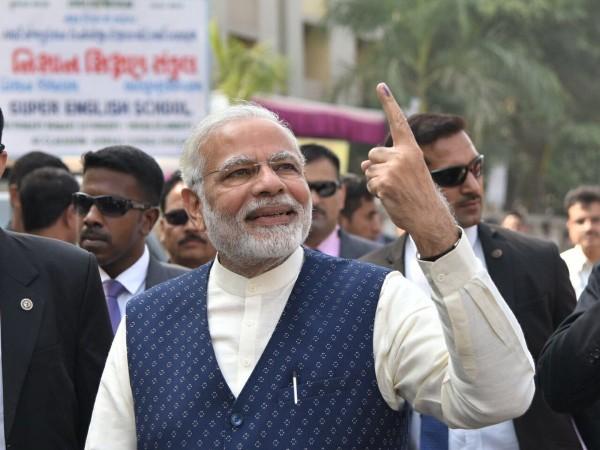
As it becomes clear that the Bharatiya Party Party (BJP) has retained power in its bastion Gujarat and also wrested Himachal Pradesh from the Congress, the focus is on the immediate implications for economic policy. The victory at the end of an aggressive and borderline nasty election campaign is apparently a vote of confidence for the BJP. But the question is, what exactly do the results indicate?
The party's top leadership was confident of scoring an easy and emphatic victory in Gujarat. BJP national president Amit Shah had even claimed that the party would win over 150 of the total 180 seats in the state. However, towards the last leg of the election campaign, there were palpable apprehensions that forced Modi to hold multiple rallies across the state and assume the role of the lead campaigner.
As the election results unravel on Monday, it's clear that BJP is down by 8-9 seats from the 2012 results. On the other hand, the Congress is likely to win 11-12 seats more than its tally in the last election.
This clearly shows the result is not in line with BJP's vision and it also sends a clear message to the party leadership that the electorate can bring a party down, however mighty it may be.
BJP as a party itself is not happy with the Gujarat election result, as celebrations are muted and leaders haven't made any statement even after winning the two states. This clearly shows that the BJP has shaken a bit.
In this backdrop, and with elections lined up in 2018 before the next general election of 2019, the BJP is most likely to keep away from rolling out radical economic and social reforms. It would rather play the populist card until the next general elections.
Earlier in August, Barclays India chief economist Siddhartha Sanyal said: "Rather than look to conquer new ground in the run-up to the 2019 hustings, we expect Prime Minister Narendra Modi to focus on cementing the success of his reforms and infrastructure projects already started. More focus will be on administrative initiatives and not new legislative reforms on the macroeconomic front."
The economist also pointed out that Modi administration won't leave any stones unturned to publicise its achievements. "Closer to the polls, Modi might consider deploying his political capital more to boost BJP's 'nationalist' credentials rather than its 'reformist' image", argued Sanyal.
It is expected that in the Union Budget 2018, Modi may shun major economic reforms and increase social spending to be in the safer side for 2019 general election.
After winning the Gujarat and Himachal Pradesh assemblies, the BJP and its allies will be ruling 19 states. However, the less-than-expected performance in the Gujarat poll, combined with Rahul Gandhi's elevation as Congress President and the unity among the opposition will make it harder for the incumbent union government at the next elections in 2019.















